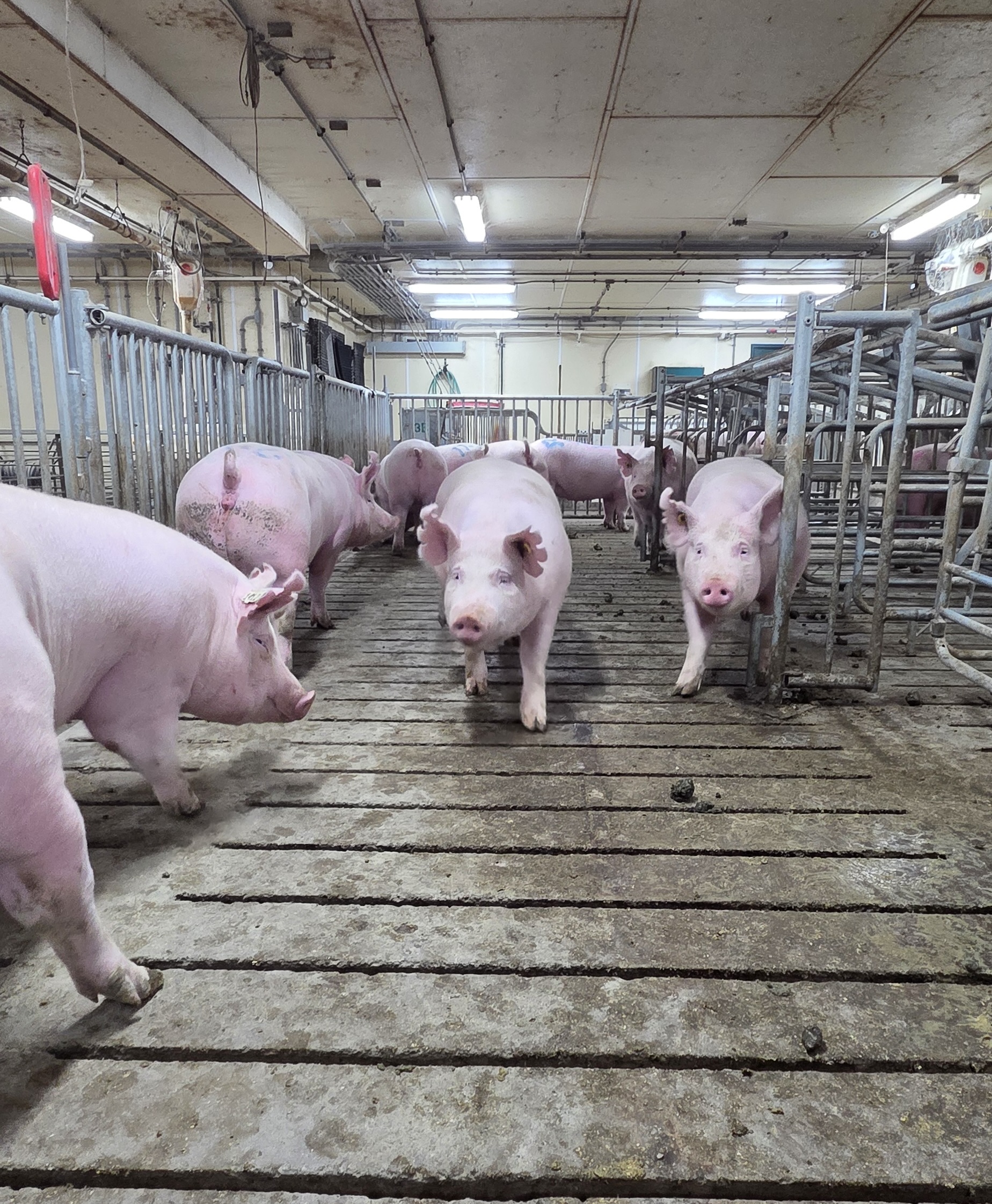MSU swine center ranked fourth nationally, first among land-grants for Yorkshire breeding
Recognition from the National Swine Registry highlights MSU’s leadership in Yorkshire genetics, student training and industry research.

EAST LANSING, Mich. — Michigan State University’s Swine Teaching and Research Center has been recognized for a third year in a row by the National Swine Registry as the fourth highest Yorkshire recorder in the country, and the highest among all land-grant universities, with 138 litters.
For decades, MSU has been breeding Yorkshires, the most recorded breed of swine in the U.S. and Canada. Yorkshires, also known as the “Mother Breed,” provide a maternal line that most commercial hogs stem from today.
The MSU Swine Teaching and Research Center houses approximately 250 sows — adult female pigs — on site, with about 230 registered as purebred Yorkshires. About 50 sows are bred at the center each month, contributing to approximately 500-550 litters per year. Of those litters, roughly a quarter of them are purebred Yorkshires.

Kevin Turner, the center’s farm manager, said one of the goals of the Yorkshire breeding program is to preserve the breed’s purebred genetics and improve its traits for breeders and other commercial companies.
“I feel honored in the fact that MSU has been able to maintain and build upon a track record of great production-based, functional Yorkshires that allow our faculty to do some of the genomic research they wouldn’t be able to do on a commercial line,” Turner said. “The purebred world has shrunk, so to still be in it — and be a prominent player in it — highlights decades of work from not just me but many others who’ve come and gone to maintain and improve this herd.”
Breeding purebred Yorkshires allows MSU to be a leader within the swine industry, Turner said. Not only does it grant MSU faculty opportunities to advance Yorkshire genetics through research, but because the center is a bio-secure, closed facility that produces and maintains its own livestock, it positions MSU as a hub for the industry that would be a key player if a foreign animal disease outbreak took place in the U.S.
Turner said this award also emphasizes MSU’s commitment to serving students and the community — presenting students with hands-on experiences that will help them become leaders in the field and fulfilling outreach activities that better inform stakeholders within the industry.
James Averill, associate director of MSU AgBioResearch, oversees MSU’s on- and off-campus research centers. He echoed Turner’s comments.
“MSU’s on- and off-campus research centers are what help make the university one of the world’s premiere land-grant institutions,” Averill said. “This honor spotlights the excellence MSU exhibits in teaching, research and outreach across all spectrums of agriculture. Congrats to the team at the MSU Swine Teaching and Research Center for this well-deserved recognition.”
The National Swine Registry is the pedigree livestock association for the purebred Duroc, Hampshire, Landrace and Yorkshire swine breeds in the U.S. and represents 87% of the country’s total purebred hog population. The association recognized the center at its annual meeting held in Kansas City, Missouri in November.
Michigan State University AgBioResearch scientists discover dynamic solutions for food systems and the environment. More than 300 MSU faculty conduct leading-edge research on a variety of topics, from health and agriculture to natural resources. Originally formed in 1888 as the Michigan Agricultural Experiment Station, MSU AgBioResearch oversees numerous on-campus research facilities, as well as 15 outlying centers throughout Michigan. To learn more, visit agbioresearch.msu.edu.



 Print
Print Email
Email




